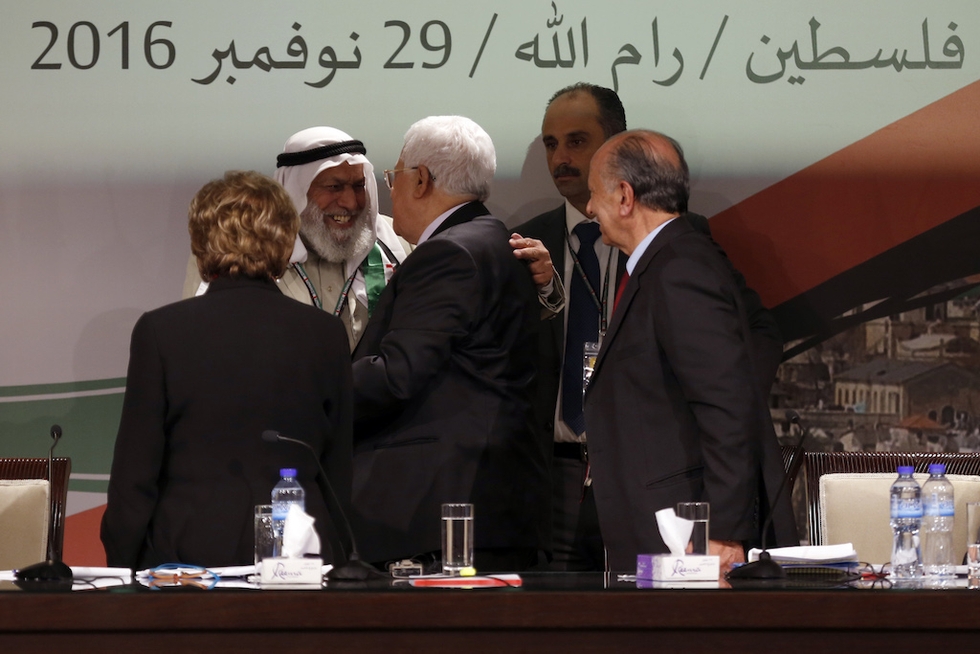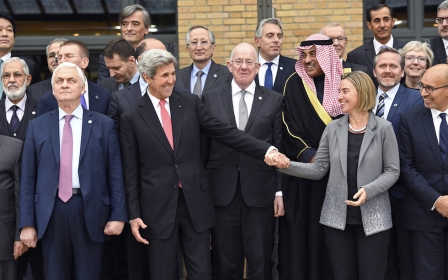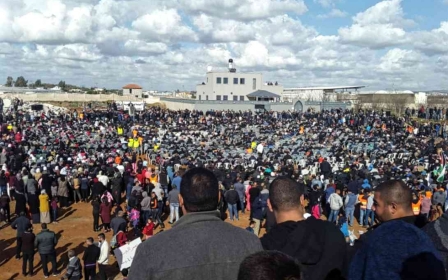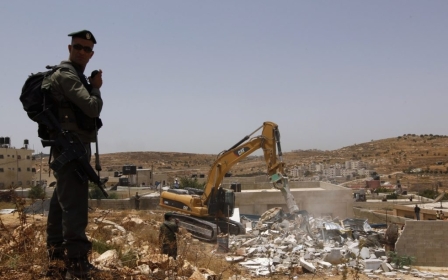Palestinian parties Fatah and Hamas agree to form unity government

The main Palestinian parties on Tuesday announced a deal to form a national unity government prior to the holding of elections, after three days of reconciliation talks in Moscow involving rival groups Fatah and Hamas.
"We have reached agreement under which, within 48 hours, we will call on (Palestinian leader) Mahmoud Abbas to launch consultations on the creation of a government" of national unity, senior Fatah official Azzam al-Ahmad told a press conference, speaking in Arabic.
Ater the government is formed, the Palestinians would set up a national council, which would include Palestinians in exile, and hold elections.
"Today the conditions for (such an initiative) are better than ever," said Ahmad.
The non-official talks in Moscow began on Sunday under Russian auspices with the goal of restoring "the unity of the Palestinian people." Representatives came from Fatah, Hamas, Islamic Jihad and other factions.
Abbas's secular party Fatah and the Islamist Hamas have been at loggerheads since the latter seized Gaza in a near civil war in 2007.
Last year the Palestinian government postponed the first municipal polls in the occupied West Bank and Gaza Strip in 10 years after the high court ruled they should be held only in the Fatah-run West Bank.
The last time the Palestinians staged elections in which both Hamas and Fatah took part was in 2006, when Hamas won the poll in Gaza.
Plea over embassy move
The Palestinian representatives also met on Monday with Russian Foreign Minister Sergei Lavrov, and asked him to dissuade incoming US president Donald Trump from carrying out a campaign pledge to move the US embassy in Israel from Tel Aviv to Jerusalem.
Israel captured east Jerusalem during the 1967 war and later annexed it - in a move not recognised by the international community - declaring all of the city its unified capital.
"We sensed understanding on the part of Mr Lavrov," said Ahmad.
Ahmad and Moussa Abu Marzouk of Hamas spoke derisively of the Quartet - the United States, Russia, the EU and UN - in its years-long effort to end the Israeli-Palestinian conflict.
"The Quartet's work completely failed. It was unable to advance the decisions taken by the international community, including (UN) resolutions," said Ahmad.
"It is imperative to find a new working mechanism for the Israeli-Palestinian conflict," he said.
Abu Marzouk, a senior Hamas official, said he no longer wanted to work with the Quartet but instead with countries and organisations on an individual basis.
"Russia can play a substantial role" in the region, he said.
New MEE newsletter: Jerusalem Dispatch
Sign up to get the latest insights and analysis on Israel-Palestine, alongside Turkey Unpacked and other MEE newsletters
Middle East Eye delivers independent and unrivalled coverage and analysis of the Middle East, North Africa and beyond. To learn more about republishing this content and the associated fees, please fill out this form. More about MEE can be found here.




